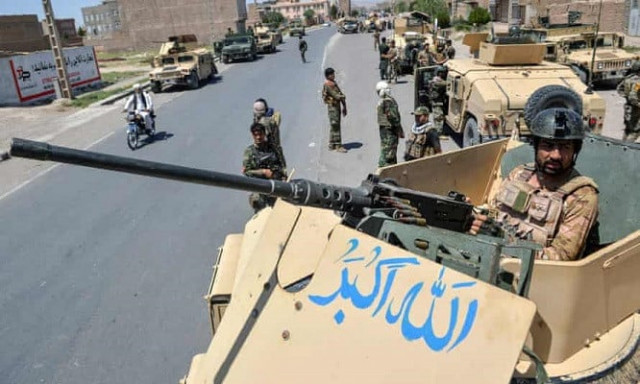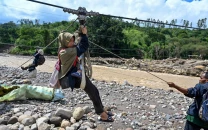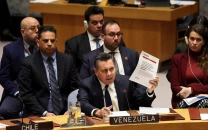Commandos deployed as Afghan forces battle Taliban for control of cities
At least three provincial capitals under attack overnight after a weekend of heavy fighting

Afghan forces battled Monday to stop a first provincial city from falling to the Taliban following weekend offensives from the insurgents on urban centres in a major escalation in fighting.
Taliban fighters assaulted at least three provincial capitals overnight - Lashkar Gah, Kandahar and Herat - after a weekend of heavy fighting that saw thousands of civilians flee the advancing militants.
Fighting raged in Helmand's provincial capital Lashkar Gah, where the Taliban launched coordinated attacks on the city centre and its prison - just hours after the government announced the deployment of hundreds of commandos to the area.
Fighting has intensified since early May, with the insurgents capitalising on the final stages of the withdrawal of US-led foreign forces after almost 20 years.
"Afghan forces on the ground and by air strikes repelled the attack," the military in Helmand said of the assault on Lashkar Gah.
Resident Hawa Malalai warned of a growing crisis in the city: "There is fighting, power cuts, sick people in hospital, the telecommunication networks are down. There are no medicines and pharmacies are closed."
Read: Taliban rockets hit Kandahar airport in Afghanistan, flights suspended
Helmand for years was the centrepiece of the US and British military campaign in Afghanistan - only for it to slip deeper into instability.
The province saw some of the fiercest fighting between foreign forces and the Taliban over the years - along with high casualties - when tens of thousands of troops poured in for former US president Barack Obama's surge.
The vast poppy fields in the provinces provide the lion's share of the opium for the international heroin trade - making it a lucrative source of tax and cash for the Taliban's war chest.
The loss of the Helmand capital would be a massive strategic and psychological blow for the government, which pledged to defend provincial capitals at all costs after losing much of the rural countryside to the Taliban over the summer.
Fighting also raged in some districts of Kandahar, the former bastion of the insurgents, and on the outskirts of the provincial capital.
Kandahar airport came under attack overnight Sunday, with the Taliban firing rockets that damaged the runway, leading to the suspension of flights for several hours.
The facility is vital to maintaining the logistics and air support needed to keep the Taliban from overrunning the city, while also providing aerial cover for large tracts of southern Afghanistan - including nearby Lashkar Gah.
In the west, hundreds of commandos were also defending Herat after days of fierce fighting.
"The threat is high in these three provinces... but we are determined to repel their attacks," Afghan security forces spokesperson Ajmal Omar Shinwari told reporters on Sunday, adding it was an "emergency situation".
The capture of any major urban centre by the Taliban would take their current offensive to another level and fuel concerns that the army is incapable of resisting the advances.
"If Afghan cities fall... the US decision to withdraw from Afghanistan will be remembered as one of the most notable strategic blunders in American foreign policy," Australia-based Afghanistan expert Nishank Motwani told AFP.
Read more: Taliban fighters enter provincial capital, clash with Afghan forces
It will show that Washington "abandoned the most pro-American government in the region to radical Islamists that believe in turning to rubble all that has been built over the past two decades".
Kabul has repeatedly dismissed the militants' steady gains over the summer as lacking strategic value, but has largely failed to reverse their momentum.
The Taliban have seized Afghan cities in the past but have retained them only briefly.
The insurgents overran Kunduz twice in 2015 and 2016, and briefly held control of Ghazni city after setting ablaze key government buildings and destroying telecommunication towers.
In recent weeks the Afghan government's air force, backed by the US military, has provided Kabul with its biggest battlefield advantage over the Taliban and has so far largely kept the insurgents from overrunning urban areas.
Despite being in its final stages of withdrawal the US military has also carried out air strikes targeting the Taliban.
"The US military has been engaged in a limited way, but in a significant one that has impact in meeting our obligations to defend Afghan forces when they are under attack," top US envoy in Kabul Ross Wilson told reporters this week.


















COMMENTS
Comments are moderated and generally will be posted if they are on-topic and not abusive.
For more information, please see our Comments FAQ